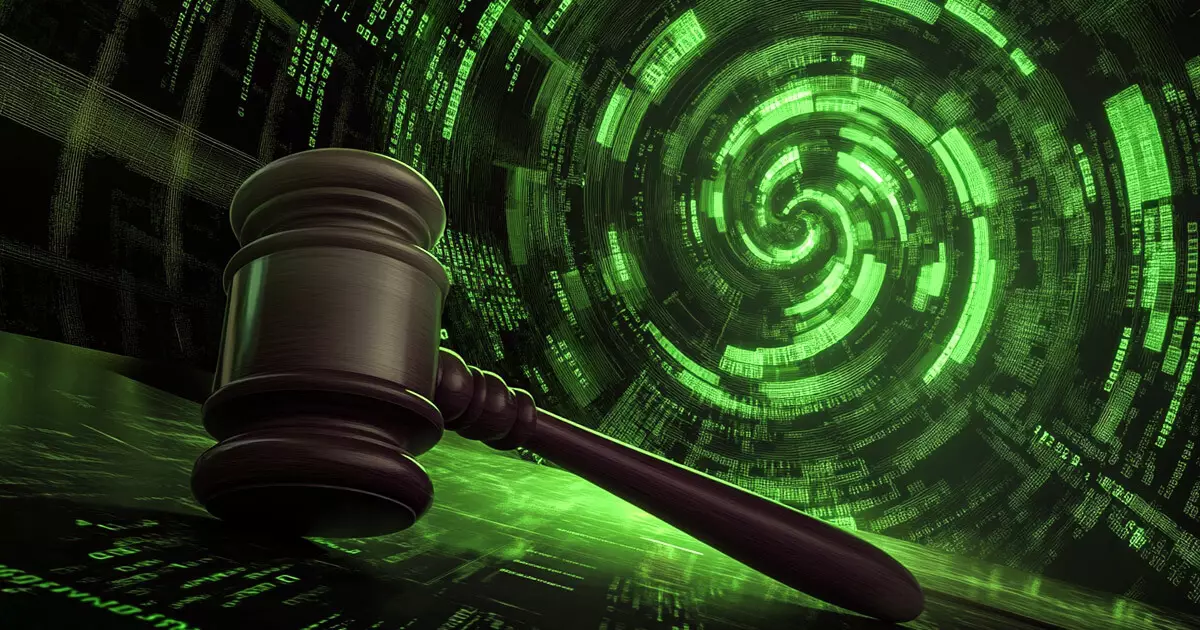The evolving nature of the cryptocurrency industry continues to face rigorous scrutiny from regulatory bodies and courts alike. A recent ruling by Judge Katherine Polk Failla from the Southern District of New York has ignited significant debates concerning the intersection of technology, law, and individual rights in the realm of cryptocurrencies. The verdict delivered on September 26 concluded that software code utilized in cryptocurrency protocols, such as Tornado Cash, is not protected by the First Amendment, challenging the notion that deploying code can be considered an expression of free speech.
Judge Failla’s ruling pivots on the essential distinction between the expressive potential of code and its practical applications in facilitating monetary transactions. By stating that the execution of functions related to money transmission falls outside the realm of protected speech, the court has set a critical precedent that could reshape the landscape for cryptocurrency developers and innovators.
The implications of this decision are far-reaching, particularly for developers like Roman Storm of Tornado Cash, who is scheduled to stand trial on December 2 for a series of serious allegations, including money laundering and operating an unlicensed money-transmitting business. Storm’s defense hinged upon the argument that his work in developing the Tornado Cash protocol should be shielded beneath the umbrella of free speech protections; a premise the court has dismissed.
This verdict illustrates a significant shift in how courts may view blockchain technology and similar innovations. It sends a clear message that developers can be held accountable for the actions of their software, whether they retain direct control over the transactions or not. This ruling could set a daunting precedent where legal liabilities may extend far beyond the intended scope of software development.
The implications of the ruling are not confined to Tornado Cash alone; they resonate throughout the entire cryptocurrency ecosystem, specifically regarding how protocols like Tornado Cash and Samourai Wallet are treated under U.S. financial law. Prosecutors contend that tools like Tornado Cash inherently qualify as unlicensed money transmitters, arguing that their operation is in direct violation of U.S. sanctions laws due to their alleged facilitation of illicit activities.
By clarifying that control over funds is not a prerequisite for defining a money transmitter under the Bank Secrecy Act (BSA), the court has illuminated the precarious tightrope cryptocurrency entities must walk in their operations. As regulations in this space continue to develop, the ruling highlights a crucial need for clarity on how existing financial regulations apply to rapidly evolving technologies, indicating that lawmakers and regulators must act swiftly to align outdated regulations with modern financial innovations.
Reactions to the ruling have been overwhelmingly critical from various sectors of the cryptocurrency community. Legal experts and industry leaders voiced their concerns regarding the potential ripple effects this ruling may have across the broader software development landscape. Amanda Tuminelli, chief legal officer for the DeFi Education Fund, expressed alarm over the expansion of developer liability, fearing that the consequences of the upcoming trial may be life-altering for Storm and other developers in the industry.
Jake Chervinsky from Variant articulated similar sentiments, calling the court’s ruling an “assault on the freedom of software developers.” Such sentiments reflect a growing unease within the industry about how legal interpretations may stifle innovation and creativity by imposing significant risks on developers, many of whom may wish to venture into relatively uncharted territories of technology and finance.
A Call for Legal Clarity and Reform
The emerging consensus is that clarity is desperately needed as the industry grapples with the ramifications of this ruling. While proponents of regulatory measures may argue that such rulings protect consumers and uphold the rule of law, the nuanced relationship between innovation, regulation, and freedom of expression must be addressed with care.
As the case against Roman Storm unfolds, it will serve as a critical litmus test for how the courts interpret the legal responsibilities of software developers within the rapidly changing cryptocurrency landscape. The outcome could very well chart the course for future regulatory measures and judicial interpretations in a sector characterized by its complexity and vigor.
This landmark ruling not only reflects the ongoing collision between technology and law but also invites a broader dialogue on how to adapt to a world increasingly dominated by digital finance. As regulators and lawmakers strive to catch up with the pace of innovation, they must balance the need for accountability with the preservation of freedom and creativity that lies at the heart of software development.



















Leave a Reply